UConn Stamford student Jithu Sajeevan explains how he took his passion for chess and turned it into a career that helps local youth learn the game. (Video by UConn)
In a white-walled meeting room at the Greenwich Public Library, three young boys stare at a screen on the wall, the table before them littered with untouched chess pieces on black-and-white game boards.
On the screen is a puzzle – a simulated scenario of a chess game in progress.
“What’s the attack?” their coach, Jithu Sajeevan ’24 (CLAS), asks them. “What was white’s last move?”
“He moved his bishop to G5,” says 7-year-old Noah.
“Ok,” responds Sajeevan. “What’s the threat? Is he trying to do something? Or did he just play that for fun?”
“He’s trying to take our queen,” answers Preston, the eldest of the trio at 10 years old.
The group strategizes over the puzzle. How many pieces does each player have on the board? Both sides are pretty even, so do we take that bishop? But wait, there’s a knight guarding it, putting our queen in further jeopardy! What do we do?
The youngest student, Eli – “Four-and-three-quarters years old!” he proudly declares when asked his age – furrows his brow and jumps out of his chair to loudly proclaim, “Oh, bishop E7! Bishop E7!”
“I like that move,” Sajeevan says. “That’s a good move, because it protects the queen. But I want you to find a better move.”
A move that takes that pesky guarding knight out of play, he suggests, freeing the essential bishop, maybe expediting a trade of pieces that’s more advantageous to their side.
Just like that, Noah spots it, the better move: Bishop takes F3. They take the knight, then the white queen. Advantage black. This was a tough puzzle, Sajeevan says, but under his guidance, the young students have worked out the solution, and they did so in about three minutes.
Sajeevan has taught about 2,000 students, mostly children like Preston, Noah, and Eli, since he started working as a chess coach just a few years ago. Coaching chess quickly became a passion of his – he didn’t have a coach of his own when he was a young player.
“When I teach them, I see myself a few years back, when I was in fifth grade, when I was the kid exploring what the game was,” he says. “I was the same way. Every time I saw a new strategy, I'm like, wow, this is awesome. It was like a light bulb in my head.
“Every time I teach them something new, and they learn something new, and they start performing well in tournaments, it just reminds me of me. And also of the opportunities that I didn't have.”
Kept Going Back
Sajeevan’s mother had to drag him to his first chess lesson. He was in the fifth grade and didn’t want to go.
“I was completely against it,” he says, “but at that time of my life, I wasn't really into anything. She was trying to find me something that I could do. She forced me to go to this chess club that they had, and I know it was a hard time for my mom to bring me, because I completely hated it.”
Sajeevan wanted to be seen as popular, and playing chess was not something done by the popular kids.
He lived in India, where he was born, with his mother and sister; his father was absent in his early childhood years, living far away in America, working to help support the family.
The odds of being popular were already stacked against Sajeevan – single mothers were frowned upon, he says. He was often bullied, and he got into fights. The rules at school in India were incredibly strict – his mother was frequently called into the principal’s office.
“Being raised by a single mom, that's not really acceptable to society. It was very tricky, and there's a lot of hate, not a lot of support,” he explains. “We went through a lot of ups and downs, a lot of poverty, not having electricity sometimes. Any other people could tell you about their life in a third-world country. It's not fun, right? Mine wasn't any different.”
Despite his initial aversion to chess, he kept going back to the club, where he would often be the only child in a class of adults. But the program was free, and the more he learned about how to play the game, the more he actually liked playing.
“What I really like about chess is that every time you play, you kind of get a different position,” he says. “It's not something you can study for. In school, for example, you can study the homework, and you'll pass a test. But chess is not like that, because every time you play, you're put into a completely different situation.”
After a few months of playing chess, Sajeevan started entering into tournaments in India, and he lost. A lot. Ten tournaments, then 15 – he lost every time.
But still, he kept going back.
“I wasn't really playing for the trophies or anything,” he says, “I just really enjoyed playing.”
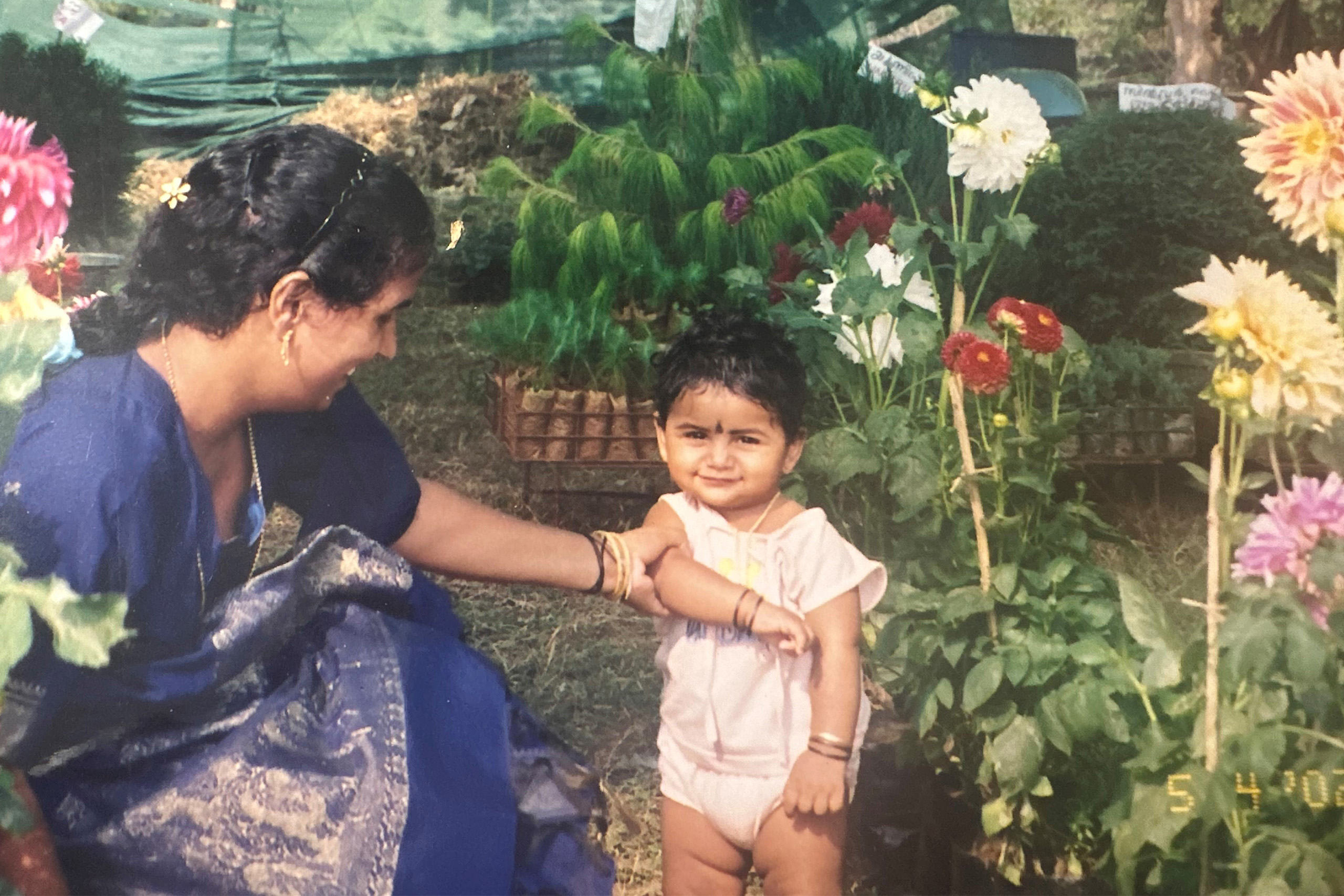
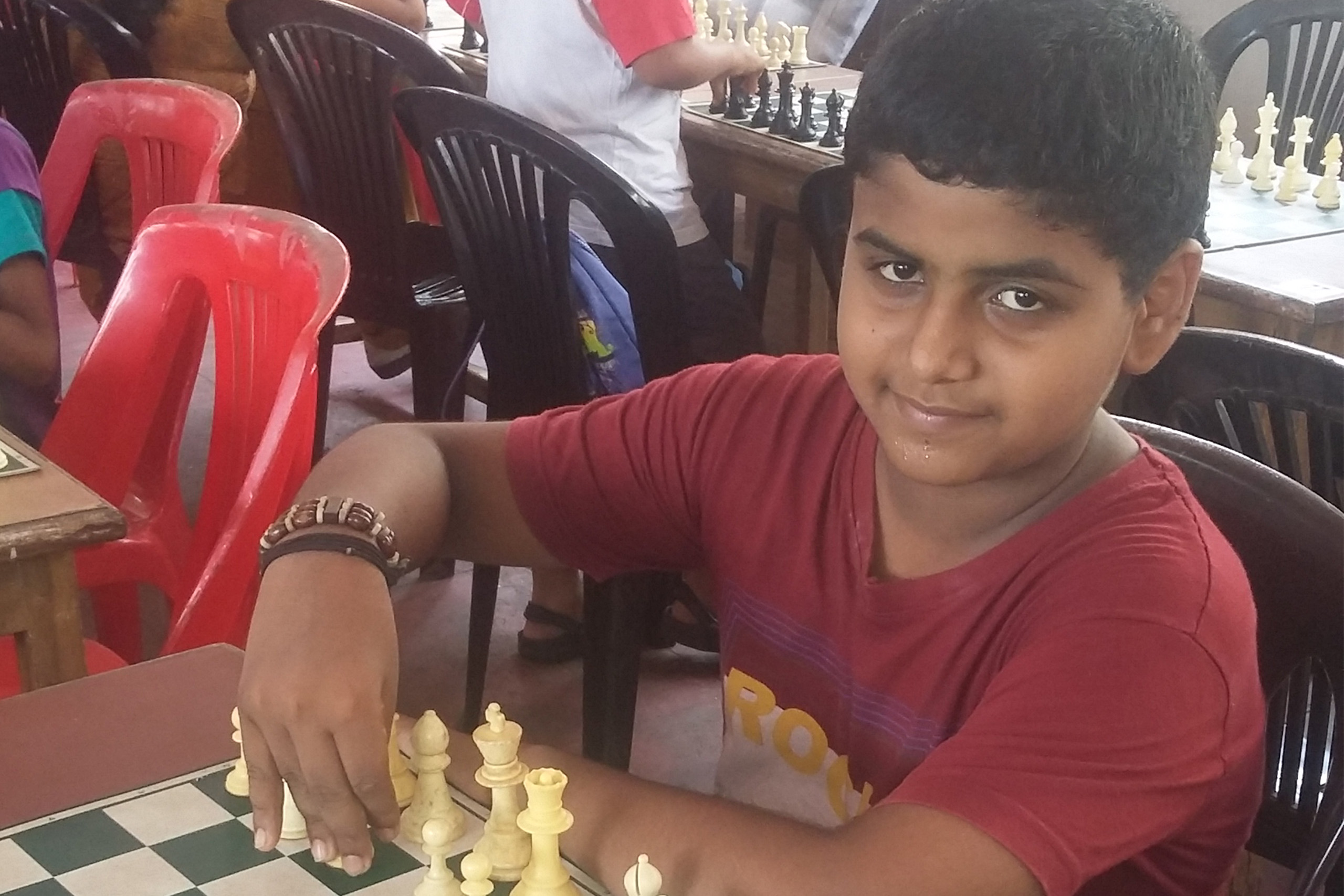
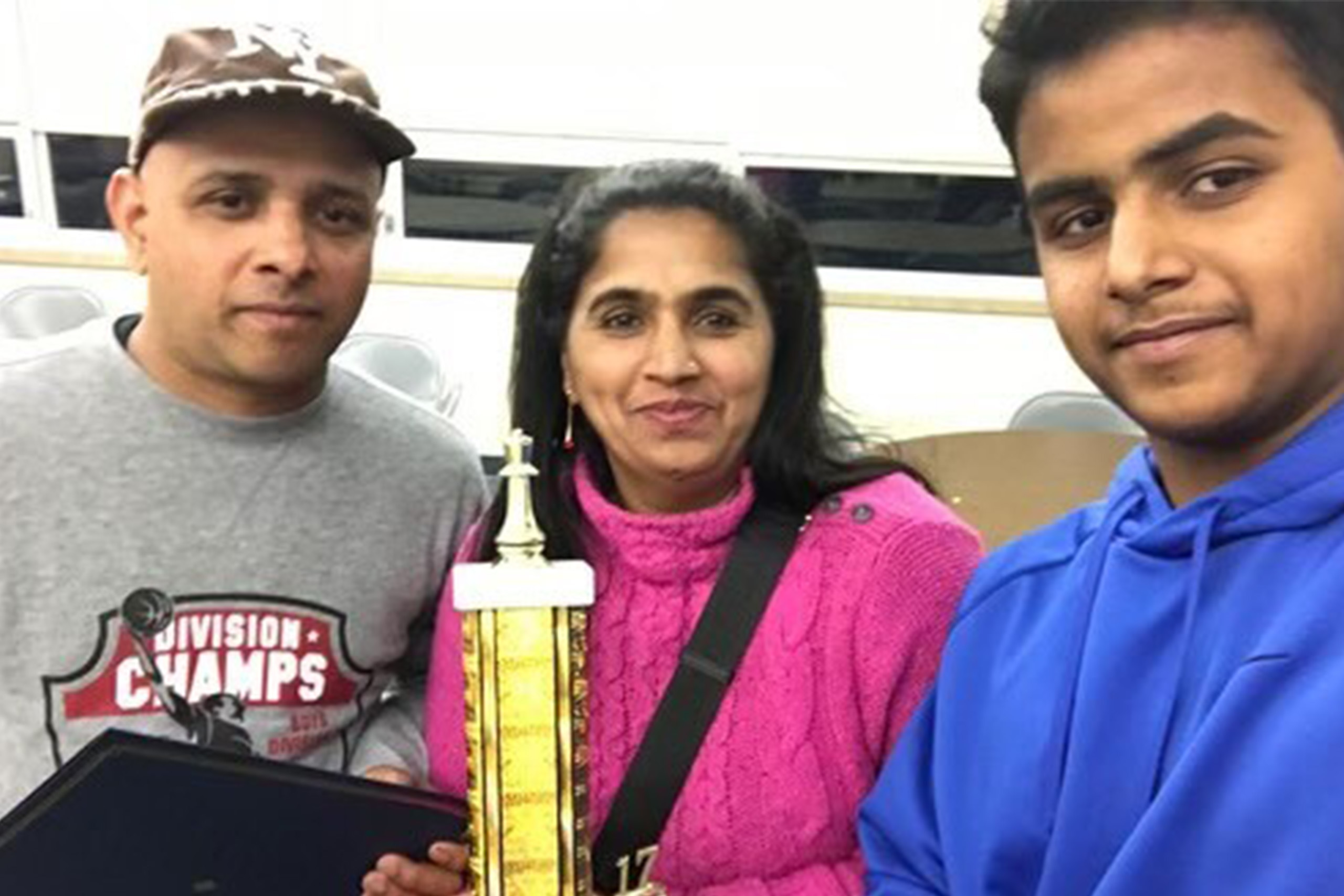
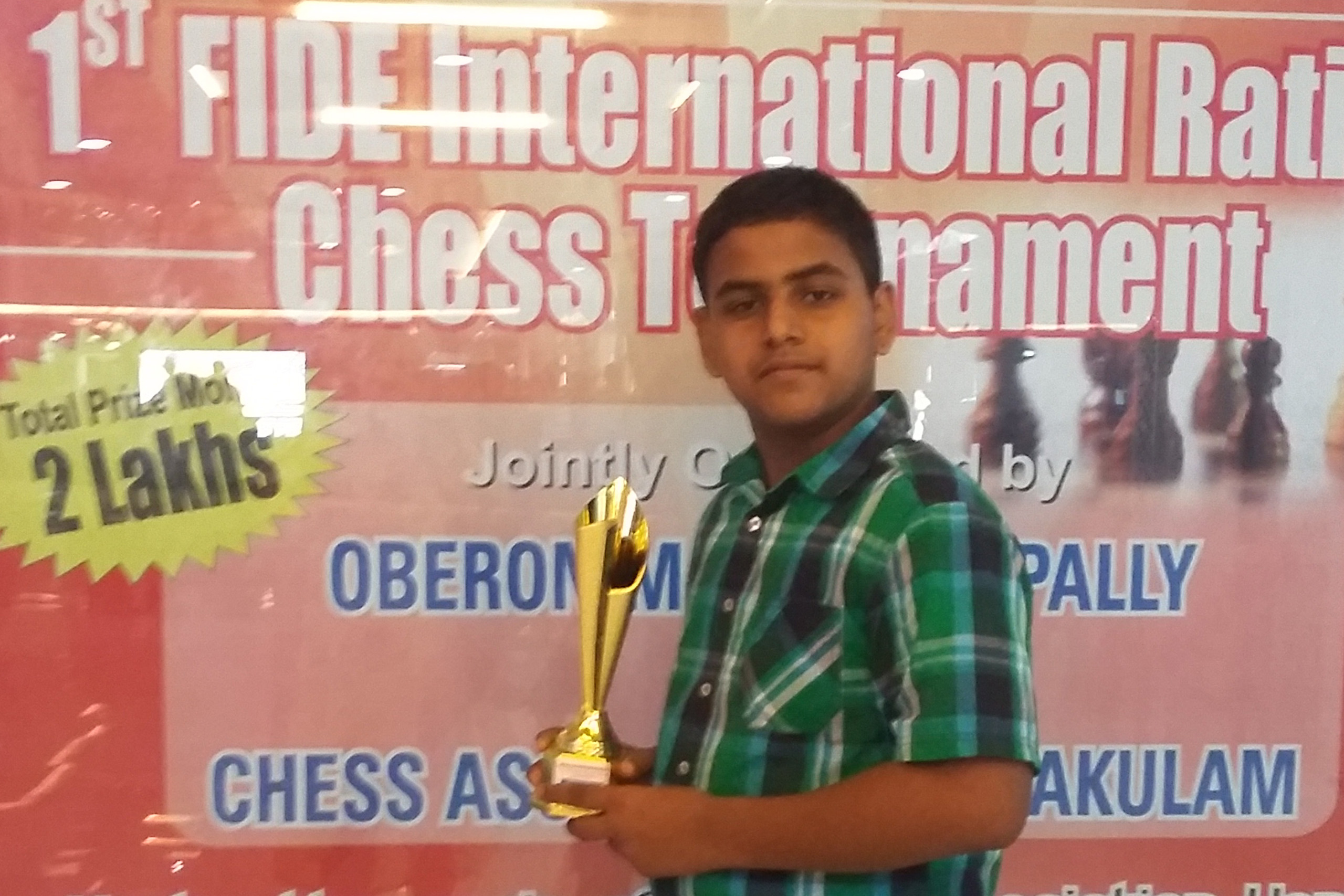
Translating the Game
At age 14, Sajeevan left India with his mother and sister. They settled in Bristol, Connecticut, and reunited with his father. He started high school in the United States unable to speak much English and had a hard time finding ways to fit in.
“The first two years were definitely tough, because I didn't speak the language,” he says. “I was made fun of, because every time I would say something, I had a huge accent, so people didn’t understand it. People didn't want to be friends with me, and I didn't want to talk, because if I say something, it might sound weird, and then people make fun of me.”
But in other ways, life in the U.S. was better. The discipline he learned in his strict Indian schools – where everyone stood at attention, didn’t speak out of turn, didn’t dare wear the wrong color shirt, and needed private tutors five days a week just to keep up – made American school feel easy.
Extracurriculars were unheard of in India – you had to be truly exceptional at soccer to be invited onto a team. In the U.S., he could play any sport he wanted, and so he did, joining every team he could.
His mother again dragged him into programs he initially despised, like the Bristol Youth Cadets, which gives young people law enforcement training and opportunities for community service.
“I had no intention to be a cop,” Sajeevan says. “It was another thing my mom made me to do, but that program really pushed me, because they were forcing me to talk. I was forced to do investigations or interview with people. That really pushed me out of my comfort zone, and I'm very grateful, because it really helped me. Because now I could talk to anybody I want.”
And he kept playing chess – entering tournaments, winning trophies, and eventually earning a national ranking from the U.S. Chess Federation.
He was a senior in high school when the pandemic started and all the chess tournaments stopped. Unable to compete, he started teaching people around him how to play.
“I taught few of my neighbors, and then I started doing some programs with the city and Parks and Rec,” he says, “and I soon found out that I'm good at teaching. I could translate the game really well to people.”
As he was learning to teach, he found a mentor in Dan Starbuck Pelletier, a soccer and chess coach who had started a company called DIG USA. Pelletier initially gave Sajeevan one student to work with. Then another. And then even more.
“The funny thing is, he didn't want to hire me, because I was living in Bristol, and all the things he was doing were down in Fairfield County,” Sajeevan says. “It was like, he didn't believe I could make that drive, but I was all about it. I was willing to drive. But then COVID happened and made it easier. When COVID happened, then there were more kids available for me to teach through Zoom, and I did a great job with them. Each kid he gave me, he’d get the best reviews from parents.”
Zero to 100
Sajeevan enrolled at UConn on the Storrs campus as a first-year student in 2020’s fall semester, initially as an engineering major.
“When I was growing up, everybody just told me I had to be an engineer,” he explains. “That's what everybody else in India was. Engineers. There was no conversation ever about owning a business or anything like that. I think it was seen as a low-level job, actually.”
He eventually changed his major, however, choosing to focus on economics instead. His interests were different. He liked real estate. He liked learning how businesses grew, and he wanted to know as much as he could.
While living in Storrs, Sajeevan kept teaching chess, sometimes coaching over Zoom from his dorm room for six or seven hours when his classwork was done. His coaching began to wane, though, when the early constraints of the pandemic started to ease.
His students didn’t want to meet online anymore. They wanted to be in-person, and the majority lived in Fairfield County.
“Dan started telling me that maybe I should move,” he says, “and that was a big deal for me, because everybody that I knew at this point was at UConn Storrs. It was a big thing to leave UConn Storrs.”
But he did. Sajeevan transferred to UConn Stamford to continue his studies while also working to grow DIG USA’s chess coaching business. He reached out to schools and libraries to develop new avenues for reaching students. He was promoted to a high-level coach, then administrator, then director, and finally to co-owner of the business. They launched community service aspects to the business, offering free chess lessons to children in Bridgeport. They started building tournament teams with weekly practices, traveling to different competitions, going from zero to 100 in a matter of months.
“When I moved down here, the door just opened for me,” he says. “Our chess business just expanded at a rapid rate.”
He began to stretch his wings and pursue other interests, like that fascination with real estate.
“I started applying for mortgages, just to see if I could get a house,” he says. “I got declined like four times, but I just kept trying, and every time I talked to them, I learned something new that I didn't know about mortgages. I just sometimes called agents to learn, to see how they operate. I would randomly pick up the phone, call an agent, and ask them some questions, and they’d tell me more about real estate.”
Sajeevan finally got approved for that first mortgage, and bought his first house – which he uses as an income-generating rental property – at age 19.
“That was my first passive income, where I'm seeing all the growth, all the benefits, of owning real estate, like cash-flow appreciation, tax write-off, and also owning a home. It’s always been a dream,” he says. “It was incredible.”
He got licensed and began working as a real estate agent. He’s now 21 years old and buying his second house, this time for his parents.
“When we came here, we were living in a one-bedroom studio, four of us,” Sajeevan explains. “We had literally 700 square feet. I was sleeping on the floor. My mom was sleeping on the floor. I think one of us had a bed. It’s always been my dream for them, a better house. So yes, I'm buying them a house.”
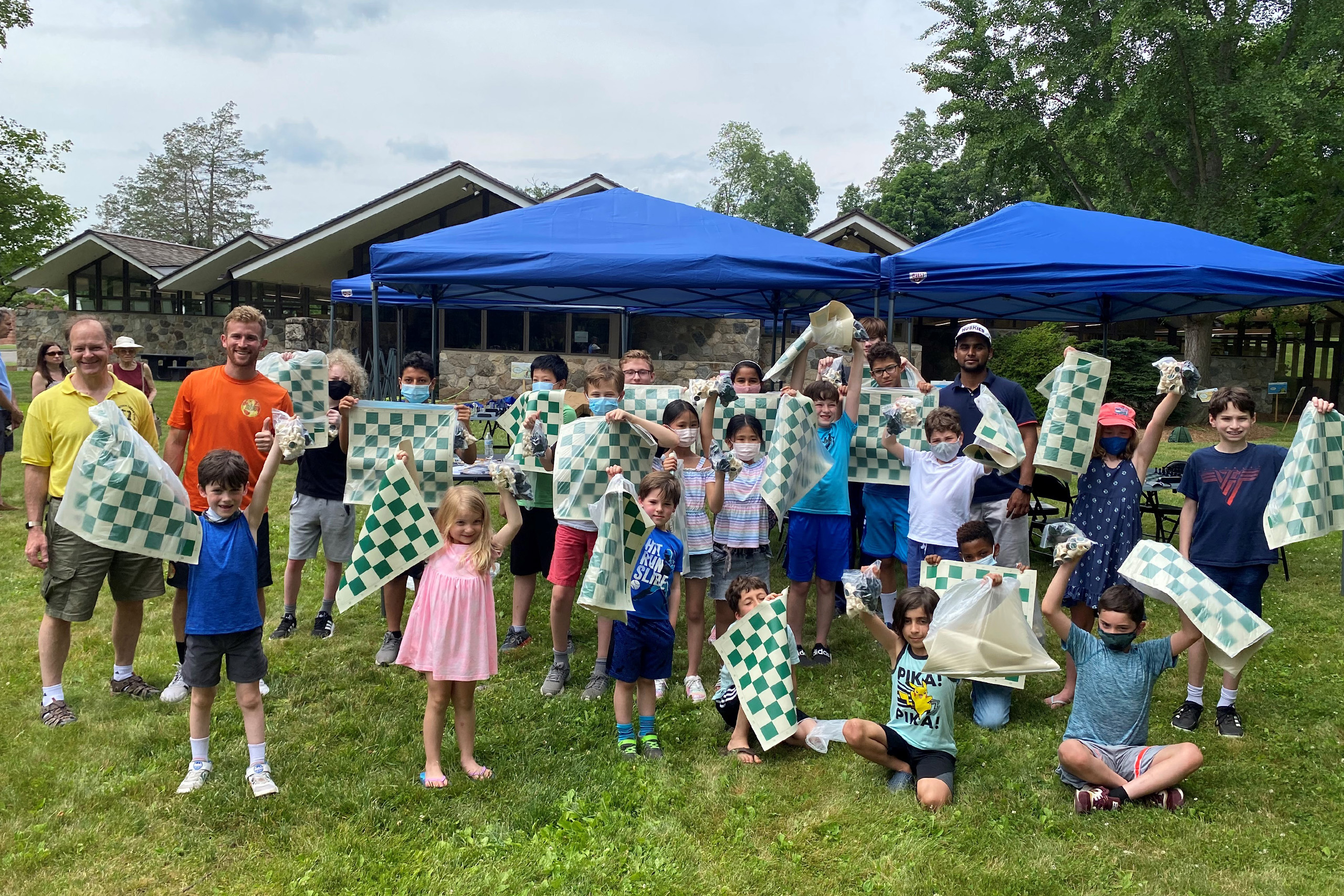
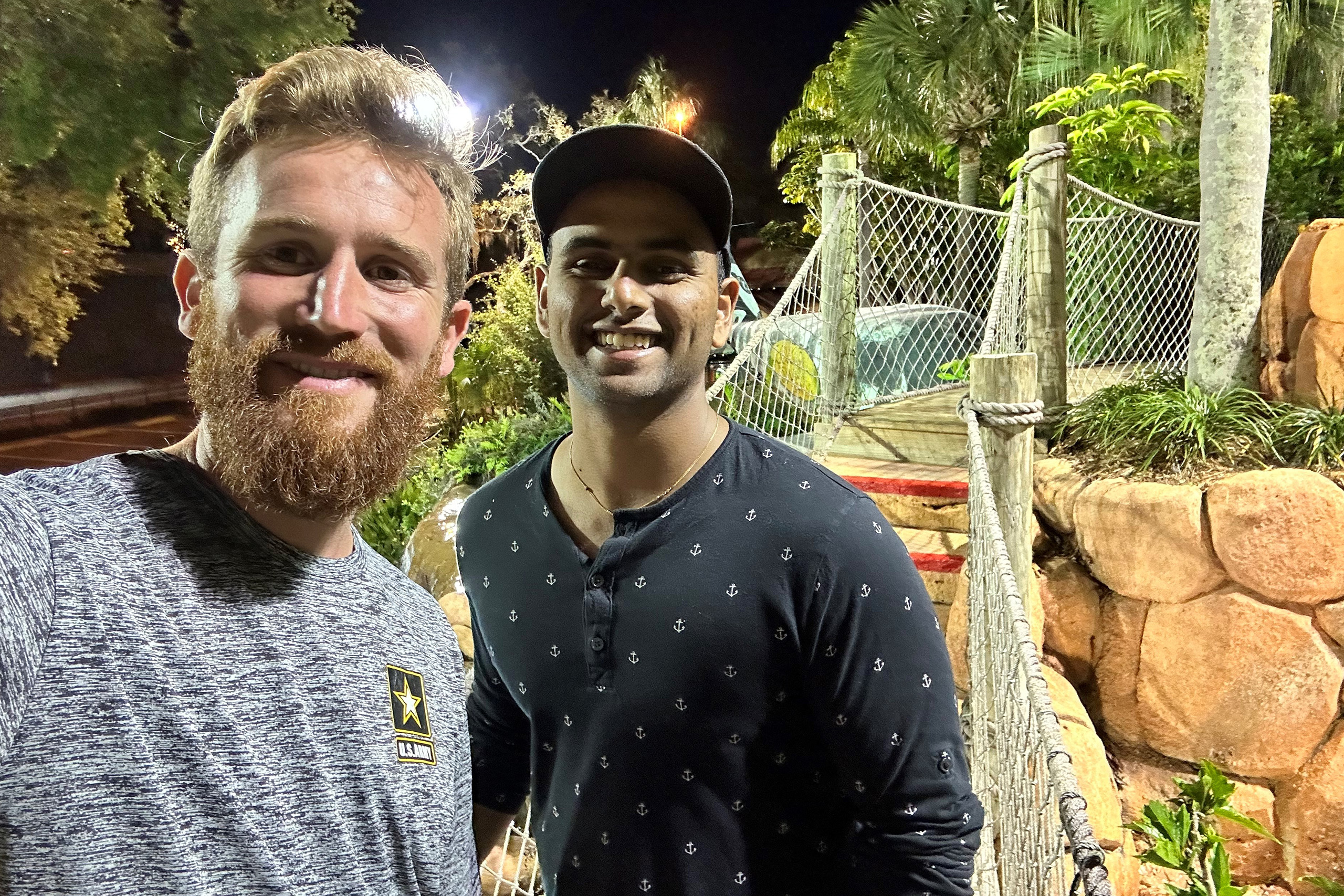
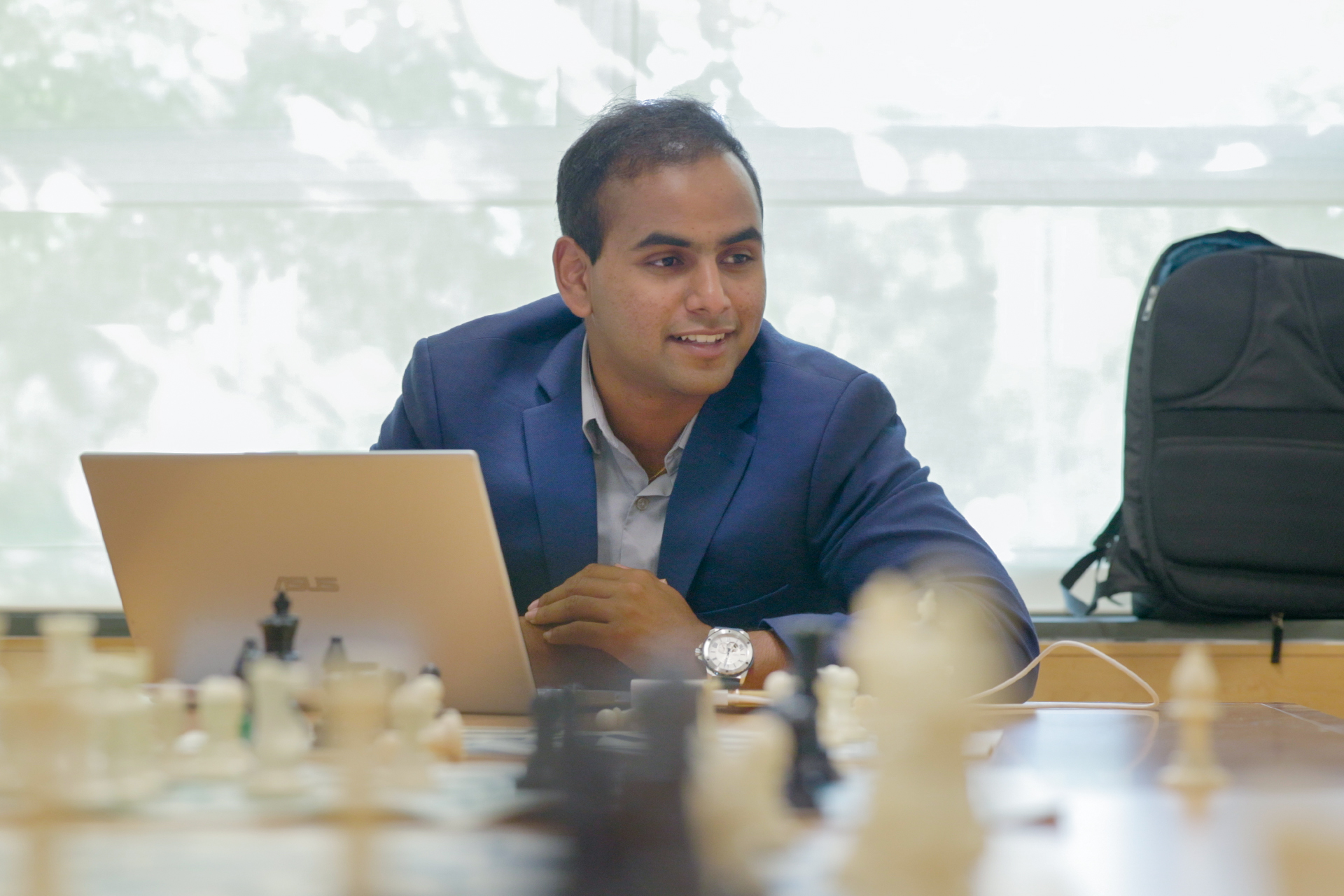
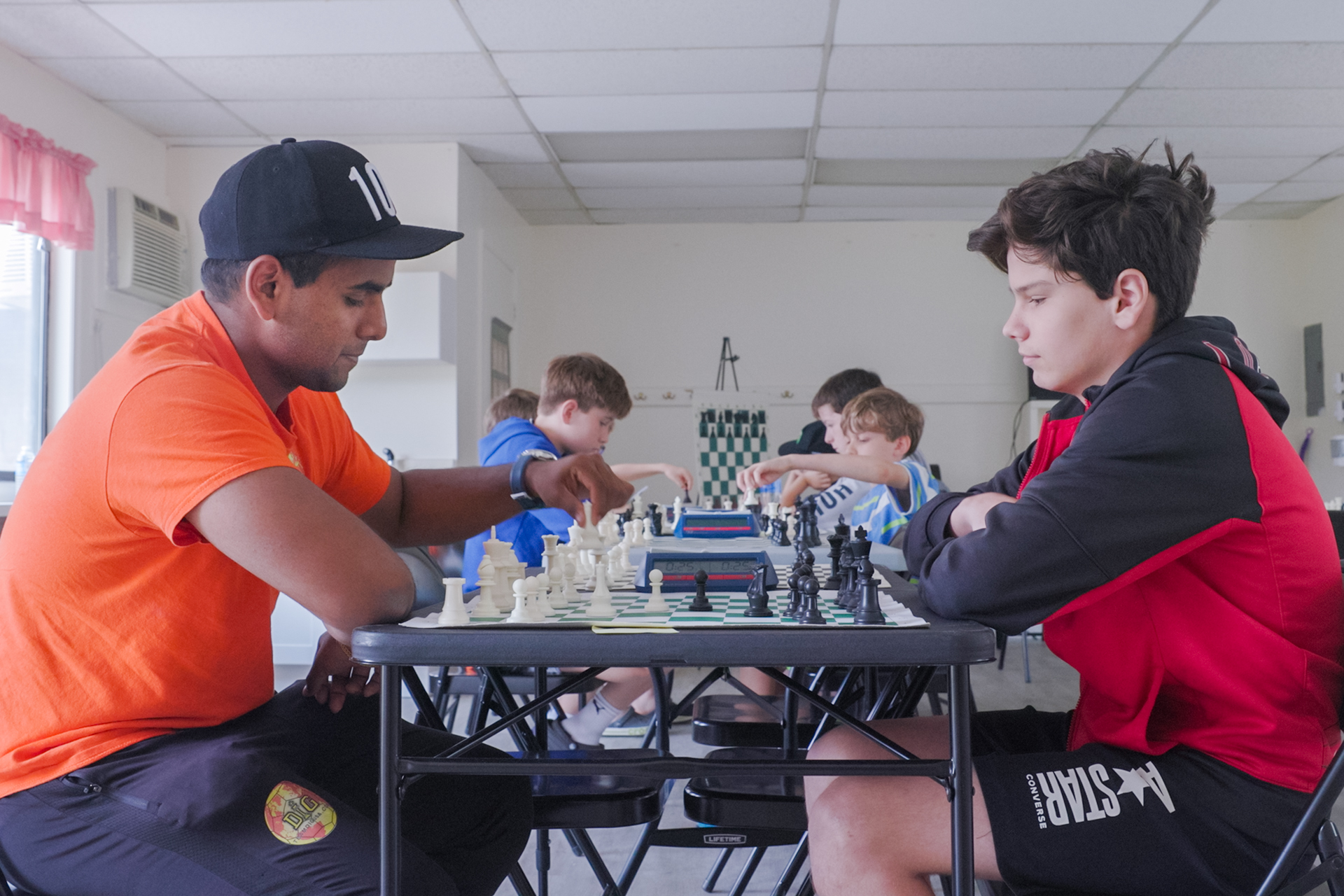
Something Great
Sajeevan has lived in the United States for only seven years and will start his senior year at UConn Stamford this fall.
When he graduates from UConn in Spring 2024, it’ll be the first time in his life he gets to wear a cap and gown – graduation celebrations are not a thing in India, and his chance to walk with his high school class in Bristol was lost to the pandemic.
He chose to study at UConn because it was close to his family – college is a big deal for them, he says, because he’s the first to go to an American college.
But UConn also impressed him with its size.
“I like to think of everything at a bigger scale,” Sajeevan says, “so a school like UConn, I see how big it is, how somebody thought they could build something big like this, and I want to be a part of that organization.”
His advice to other budding student entrepreneurs is to surround themselves with people who are doing what they want to be doing themselves. Use their example in your own life. Find mentors to guide you. Don’t give up, even if you’re not good at it at first. Keep trying. Keep getting better.
And his advice in chess?
Always quickly castle your king, and never discount the pawns.
“Pawns, they're considered to be the weakest piece in chess, but it's actually one of my favorite,” he says, “and that's because even though the pawn has the least power, and you can only move one direction at a time, this pawn has the potential to turn into a queen by bringing it to the other side.”
He continues, “If this pawn somehow, moving one at a time, gets to the other side of the board, it could turn into a queen. And the queen is the most powerful piece in chess. So what does that tell you? For me, this is the kid I was when I started playing chess. I didn't know anything. But you have the potential to turn into a queen if you do the right things.
“So for me, pawns show potential. You could turn into something great. That's my favorite piece.”


